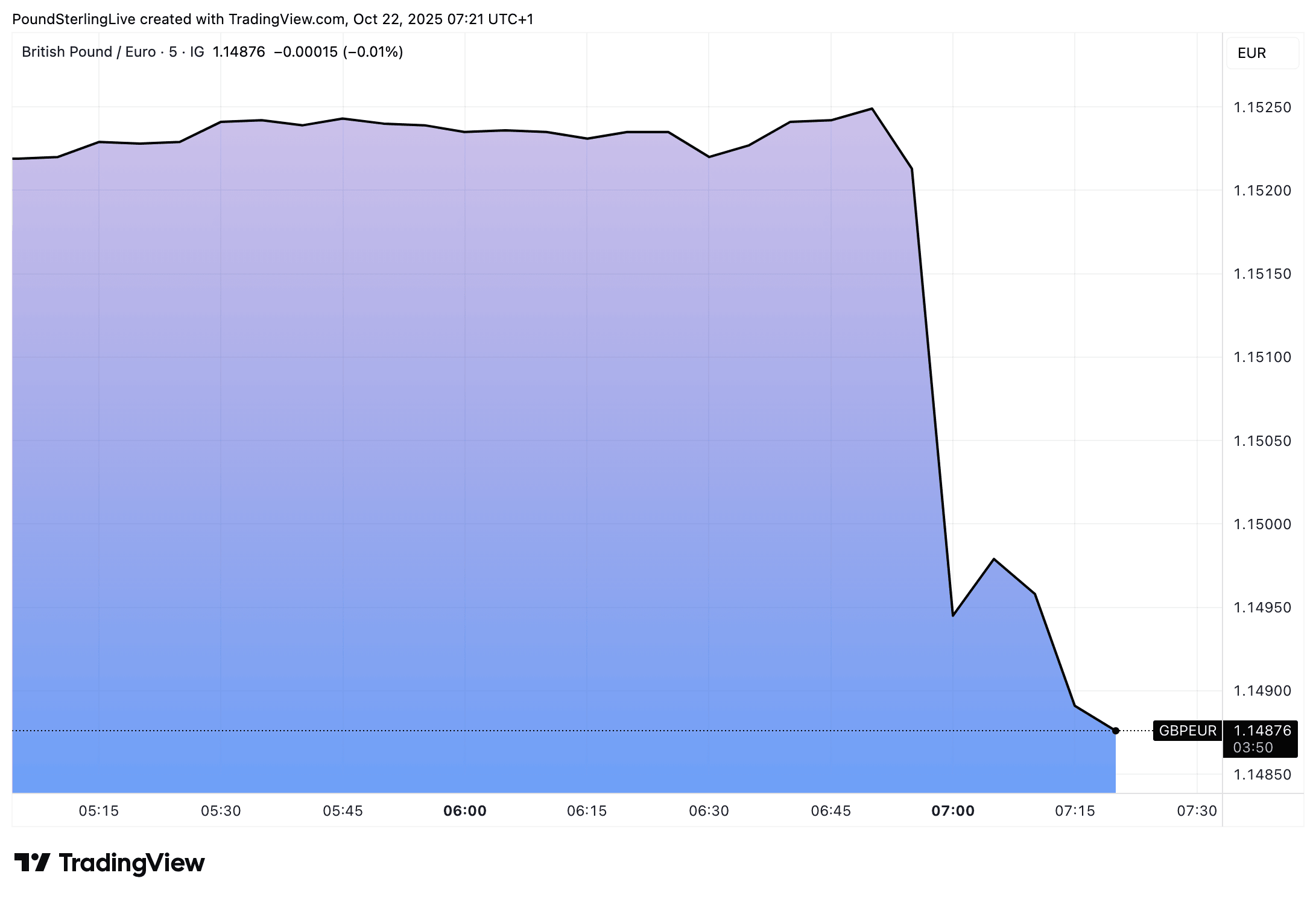
Image © Adobe Images
UK inflation didn't quite meet the highs we feared it would.
The British pound has fallen against the euro, dollar and other major currencies after UK inflation rose by 3.8% year-on-year in September, according to the ONS.
This was below the 4.0% level feared by economists.
So although inflation is uncomfortably high, the miss will be enough to prompt the Bank of England to cut interest rates again in December. Money market prices show investors see the probability of another cut before year-end rising from 40% to 70%.
The undershoot is undoubtedly good for households and businesses, as is the promise of another rate cut. We thought that this good news might bolster the pound, as did strategists at Morgan Stanley.
They could yet be proven correct. However, for now, the long-standing rule still applies: high inflation = a stronger currency, a below-consensus print = a weaker currency.
The pound to euro exchange rate has promptly dropped back below 1.15, and the pound to dollar exchange rate trades lower at 1.3350. Those with currency purchase requirements are welcome to contact our dealing desk for advice and a rate quote.
"10-year Gilt yields dropped 8bp to 4.4% while sterling weakened against all major currency pairs - declining by 0.3% versus the US dollar to 1.33 and by 0.4% versus the euro to 1.15," says Kallum Pickering, Chief Economist at Peel Hunt.
Looking at the details, the monthly rate of inflation fell from 0.3% to 0% m/m in September.
The all-important core CPI read at 3.5% y/y, down from 3.6% and below the 3.7% expected.
Services CPI read at 4.7%, unchanged and just below the 4.8% expected.
To be sure, the UK's inflation battle is still not won, as services inflation printing at 4.7% means headline inflation will struggle to fall materially. Economists at Santander warn the UK will be bridled with 3.0% inflation rates well into next year, reflecting a half-baked commitment by both the Bank of England and the government to bring inflation back down to 2.0%.
For the pound, today's undershoot encourages softer levels near-term, although we still won't be surprised to see the pound recover on the basis that good economic news should ultimately be good for the pound.

